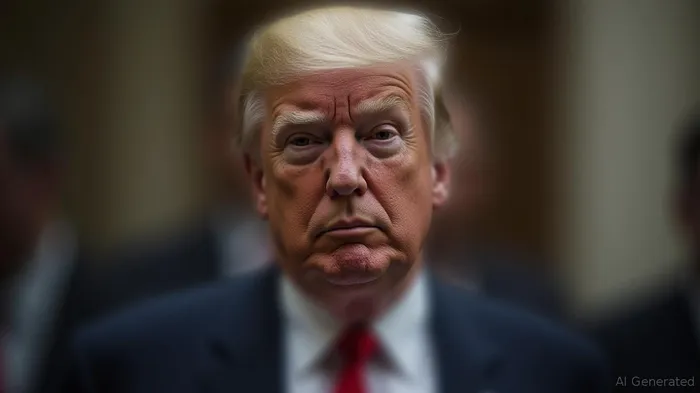Trump Epstein Files: Judge Blocks Release of Grand Jury Records Amid Transparency Push
A Florida federal judge on Wednesday declined a request by the Trump administration to release grand jury documents related to the investigation into Jeffrey Epstein, citing constraints imposed by legal precedent governing grand jury secrecy. U.S. District Judge Robin Rosenberg ruled that the Justice Department's request did not meet the narrow exceptions required for unsealing grand jury materials, effectively stalling efforts to release additional court records from the mid-2000s investigation involving Epstein. The ruling represents a significant obstacle for the Trump administration, which has been under increasing pressure to fulfill promises to release documents linked to Epstein's alleged network of sex trafficking and impropriety among powerful individuals.
The Justice Department had put forward a motion to unseal transcripts from federal investigations held in West Palm Beach in 2005 and 2007, seeking to address public interest and calls for transparency. However, Judge Rosenberg emphasized the limited circumstances under Eleventh Circuit law that would permit the disclosure of such documents. She noted that the government had not sufficiently justified the need for these documents to be disclosed outside of judicial proceedings.
Further complicating matters, the Justice Department faced another setback in New York, where a similar request to unseal Epstein-related grand jury materials remains pending. Federal Judge Paul Engelmayer dismissed Ghislaine Maxwell's attempt to access grand jury records tied to Epstein, elucidating that defendants typically lack entitlement to grand jury materials unless compelling justification is provided.
The refusal to unseal the documents comes amidst mounting scrutiny over the Trump administration's handling of the Epstein case, exacerbated by accusations of reluctance to make public any incriminating information found within the grand jury documents. President Trump had reportedly instructed Attorney General Pam Bondi to secure the release of all transcripts related to Epstein, asserting the need for public transparency and accountability.
The administration's unwillingness to divulge further details has sparked discontent among Trump supporters, many of whom are pressuring their representatives for clarity and action. Calls for the Justice Department to disclose more information are underscored by assertions that such transparency would help confirm or refute speculations surrounding Epstein's purported connections to high-profile individuals, including Trump himself.
The case involving Epstein, who died by suicide in 2019 while awaiting trial on sex trafficking charges, continues to evoke attention over the potential existence of a "client list" implicating notable figures in his alleged activities. While the Trump administration seeks further legal ground to unseal Epstein-related records, Judge Rosenberg's decision to deny their request on procedural grounds underscores the legal complexities and high stakes involved in balancing grand jury confidentiality with public demands.
As the Trump administration faces no immediate resolution in its efforts to release grand jury materials involving Epstein, the decision not to make them public is framed by ongoing legal maneuvers in both Florida and New York's federal courts. These developments coincide with congressional moves to subpoena Epstein's former associate, Ghislaine Maxwell, seeking her testimony regarding Epstein's alleged crimes.
Speaker of the House Mike Johnson declared that legislative activities concerning Epstein's files would pause until congressional sessions resume after the summer recess. Johnson's decision to adjourn early reflects the tumult surrounding Epstein-related inquiries and the pressure on lawmakers to address demands for increased scrutiny and release of information.
With ongoing expectations for transparency, analysts predict continued contention as the Justice Department reassesses its approach. Any substantive release of grand jury materials could significantly impact public perception and carry implications for law enforcement's investigative capacity concerning high-profile sex-trafficking cases.

Stay ahead with real-time Wall Street scoops.
Latest Articles
Stay ahead of the market.
Get curated U.S. market news, insights and key dates delivered to your inbox.



Comments
No comments yet